Rules about records are still in place. They are saved for about 30 years or so and tossed. That is history tossed. When ACSAA first organized, in 1989, no police museums open to the public existed in the State of California and very few in the United States. The only histories were in private corners of a department, or in local historical society records, all of which brings me to a major reorganization of the ACSAA. We are a non-profit, volunteer organization, but under Sheriff Greg Ahern, we are being recognized and appreciated like never before. And, here are the new organizers.
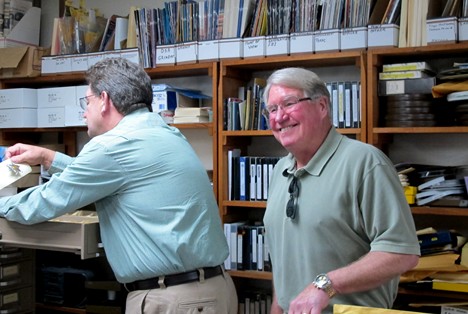
Dale Toussaint, on the left with Pat Adams. Dale was the guy who took over. He joined the National Organization of Archivists and is learning how to handle archival written material, artifacts and how to assession material professionally. On Wednesday, he held the first recruitment/organizational meeting.
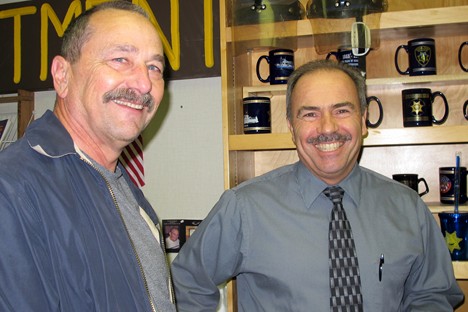
Mike Rores and Frank Buschhueter
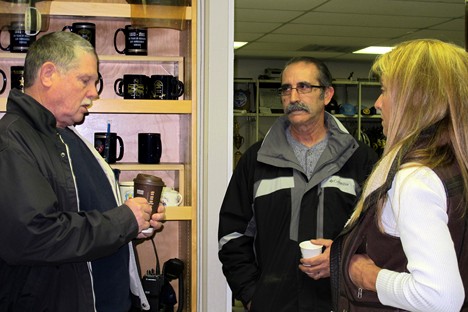
Tim Ostlund, Frank Silva and Patty Stinson. Patty Stinson is unique because she is the oldest women to pass the Academy as a deputy, plus she is an artist and produced three giant murals for the Office of Emergency Services at the Santa Rita Base, which I will blog later.
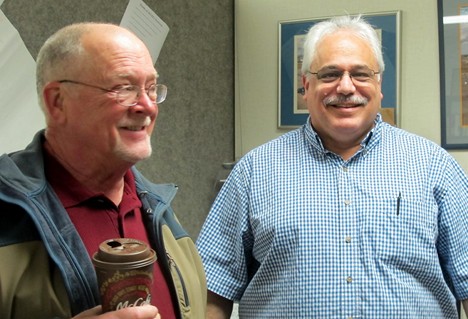
Chris Ostlund and Ralph Striker.
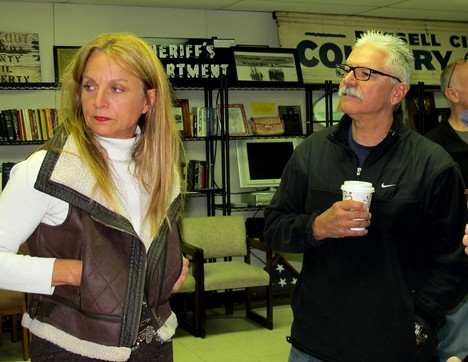
Patty with Dwane Montes.
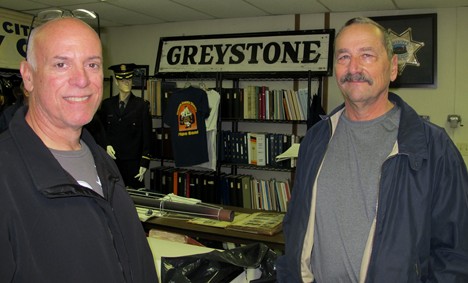
Bill Gordillo with Mike Rores.
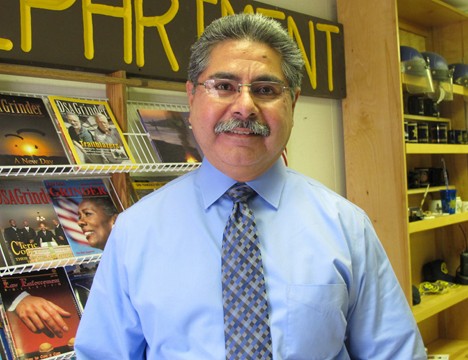
Jesus Ureste.
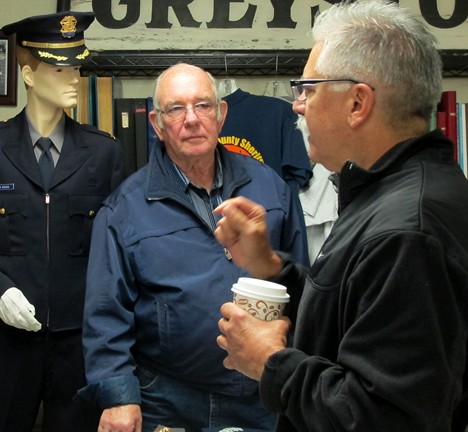
Bud Harlan with Dwane Montes. Bud is the only volunteer from the old days when I ran the archive. He has been a great contributor and a steady presence at the archive. For myself, I feel my greatest contribution has been the interviews I've done recording experiences in the department as it changed over the generations. During the seven plus years I've been on the road with Jim, I still managed an interview or two a year. I hope to continue that practice. In fact I was given the names of Jim Wilson, 84 years, and Bud Garrigan as two must interviews. On my own personal list I have Bud Harlan, and one of the original volunteers, Jim Rasche.
As I get to know people, I hope to continue interviews when I can. More on my two-day trek to the Bay Area tomorrow. (I hope I got everyone's name right. If not, please correct me.)
No comments:
Post a Comment